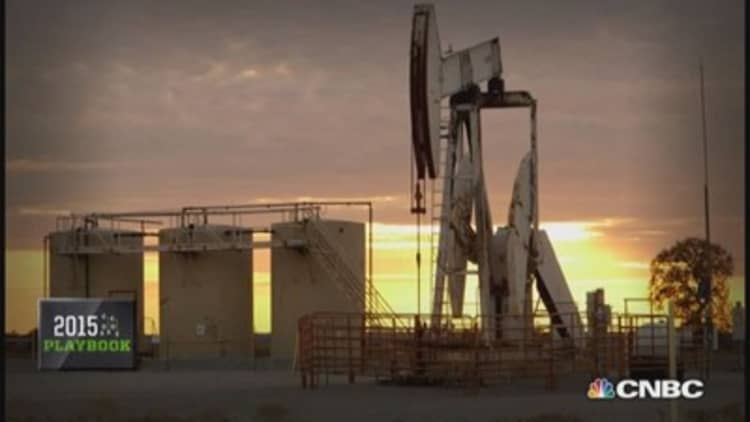Venezuela confirmed on Tuesday it had entered a recession while inflation remained the highest in the Americas, and President Nicolas Maduro's socialist government blamed political foes for the dismal data.
The Central Bank said gross domestic product (GDP) contracted in each of the first three quarters: 4.8 percent, 4.9 percent and 2.3 percent. Twelve-month inflation reached 63.6 percent in November.
Economists, banks and regional bodies have long forecast that the OPEC member would be the worst-performing major economy in the region this year. The central bank statement confirmed those views just before Maduro began a news conference in which he was expected to announce economic changes.
Maduro, 52, won election last year to replace his mentor Hugo Chavez. He has blamed political opponents, who protested in the streets for four months this year, for damaging the oil-dependent economy.
Those protests resulted in violence that killed 43 people, including protesters, security officials and Maduro backers.
"These actions against public order blocked the correct distribution of basic goods to the population, as well as the normal development of production of goods and services," the central bank statement said.

"This resulted in an inflationary spike and a fall in economic activity."
Venezuela, whose last recession was from 2009-2010, may struggle to turn around its economy given the plunge in oil prices. Venezuelan crude has dropped to $48 per barrel, compared with $96 mid-year.
Read MoreIs Venezuela headed for a default?
Opponents say Venezuela's economic crisis is a consequence of 15 years of socialist policies, begun by Chavez, who ruled from 1999 to 2013 before dying of cancer.
"With one day of the year left, they publish the September, October and November figures. The highest in the world. Economic efficiency Nicolas! Wonderful," scoffed opposition leader Henrique Capriles via Twitter.
Changes coming?
Venezuela had not published inflation data since August.
Inflation in September was up 4.8 percent, October 5.0 percent and November 4.7 percent, compared with the same months of 2013, the bank said in its statement.
The bank said Venezuela's balance of payments posted a surplus of $6.8 billion by the end of the third quarter, with a current account surplus of $899 million, and the capital account showing a deficit of $568 million.
Venezuelan exports, of which oil accounts for more than 90 percent, fell 14.2 percent to $19 billion in the third quarter, while imports were down slightly, by 1.4 percent, to $12.2 billion in the same period, the bank said.
Chavez-era welfare policies have long been popular among Venezuela's poor, and the bank said social indicators were all improving despite the poor GDP data.
It said extreme poverty was down to 5.4 percent of households in 2014, half the level before Chavez came to power, while unemployment fell to 5.9 percent.
"Despite the protests and economic war during 2014, Venezuela's economic indicators have improved," Maduro said at the start of his news conference.
"This economic war, this fall in the oil prices, is a great opportunity for economic change. 2015 is the year of opportunity, for great change in the economic model."
Many analysts are recommending reforms such as a unification of Venezuela's three-tier currency controls and a rise in gasoline prices that are the cheapest in the world. But Maduro has balked at such measures so far, perhaps wary of a social backlash prior to a crucial vote for a new parliament next year.

